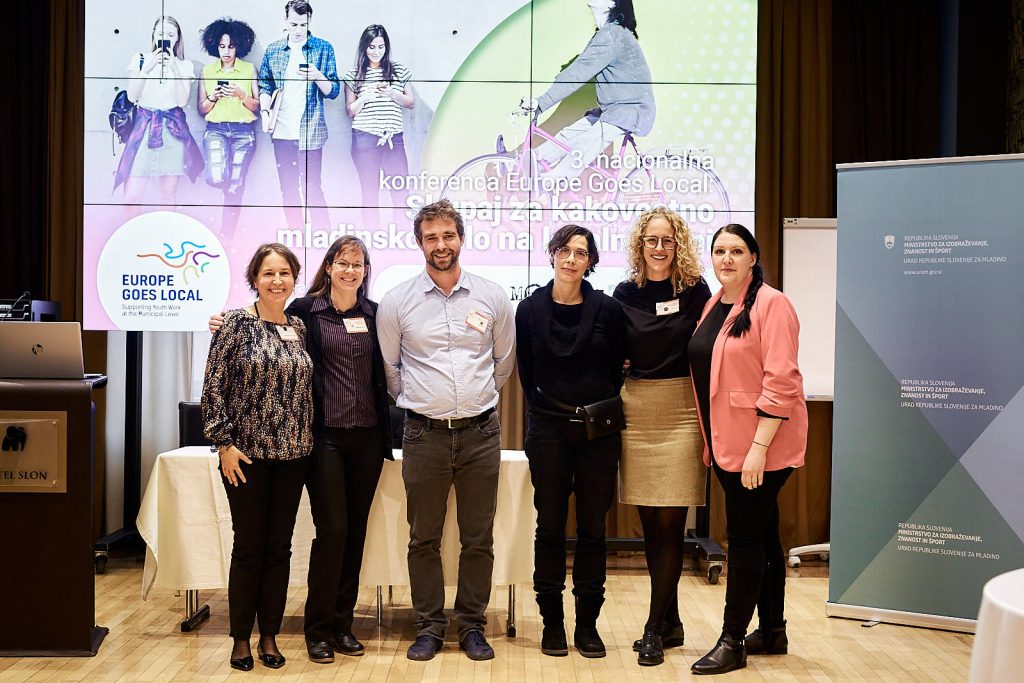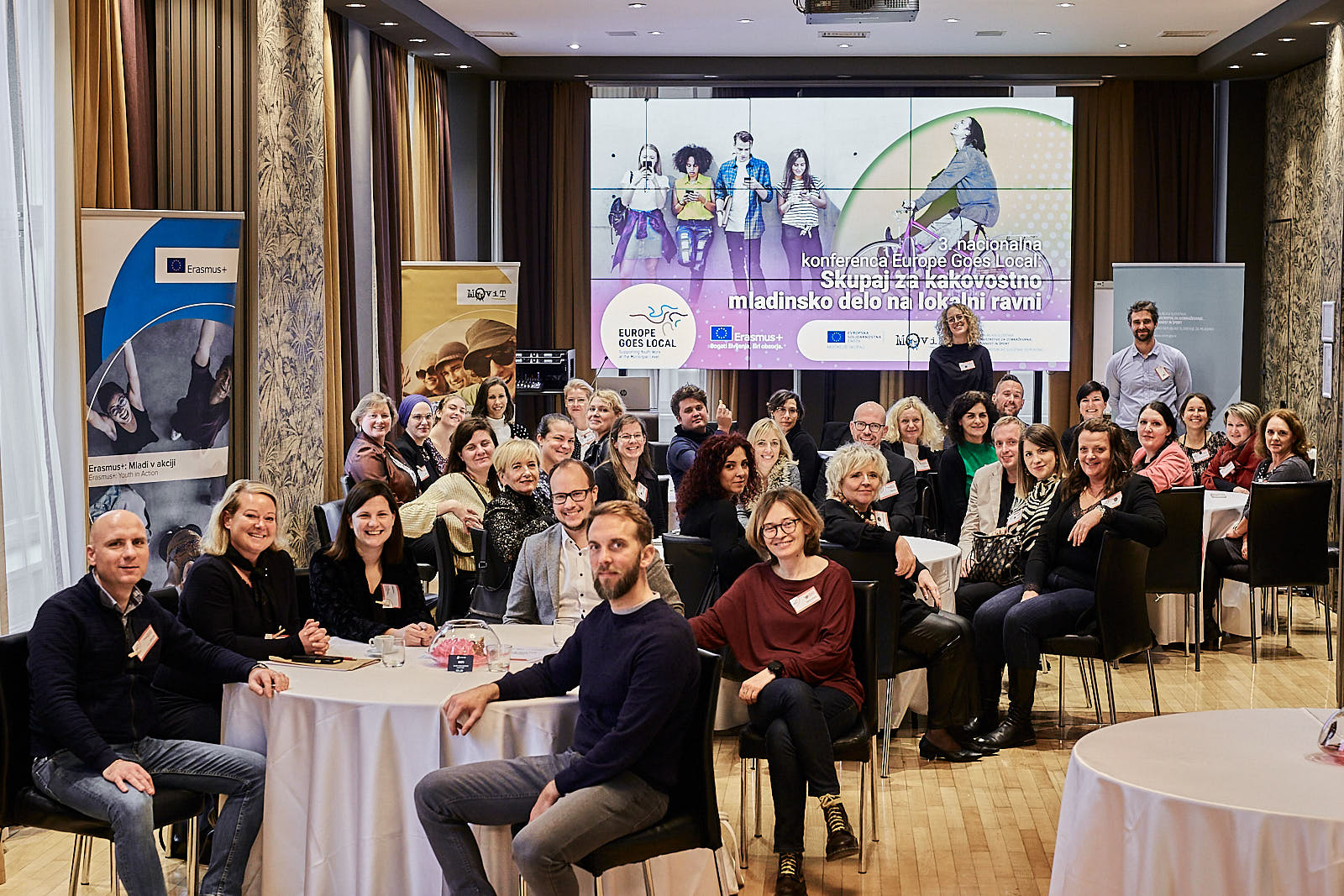
The Slovenian National Agency MOVIT had their third national conference “Together for quality youth work” as part of the EGL partnership events in Slovenia on 29 November 2022. The participants learned how and why to monitor and evaluate youth work, how the Strategic Plan for Youth Work will be implemented in Slovenia, they exchanged experiences of participation in past EGL events, they brainstormed about what else needs to be done, and more.
Municipal officials responsible for youth, municipal councillors and representatives of the Slovenian Youth Office, the MaMa Network, and the Slovenian Youth Council gathered in the Slon Hotel in Ljubljana. Katarina Gorenc, Head of the Youth Office of the Municipality of Ljubljana, warmly welcomed the participants in her opening speech.
Mag gave the next speech. Tina Kosi, Acting Director of the Slovenian Youth Office, emphasised that fundamental youth work takes place at the local level: where young people are at home, where there are active youth organisations, and where municipalities understand the importance of youth work for the development of young people into active and engaged individuals. She invited the participants to take into account the needs and specificities of young people in the post-pandemic era when planning support for youth work in their municipalities, and to monitor and evaluate youth work in their municipalities as political decision-makers and use the results to plan the necessary changes.
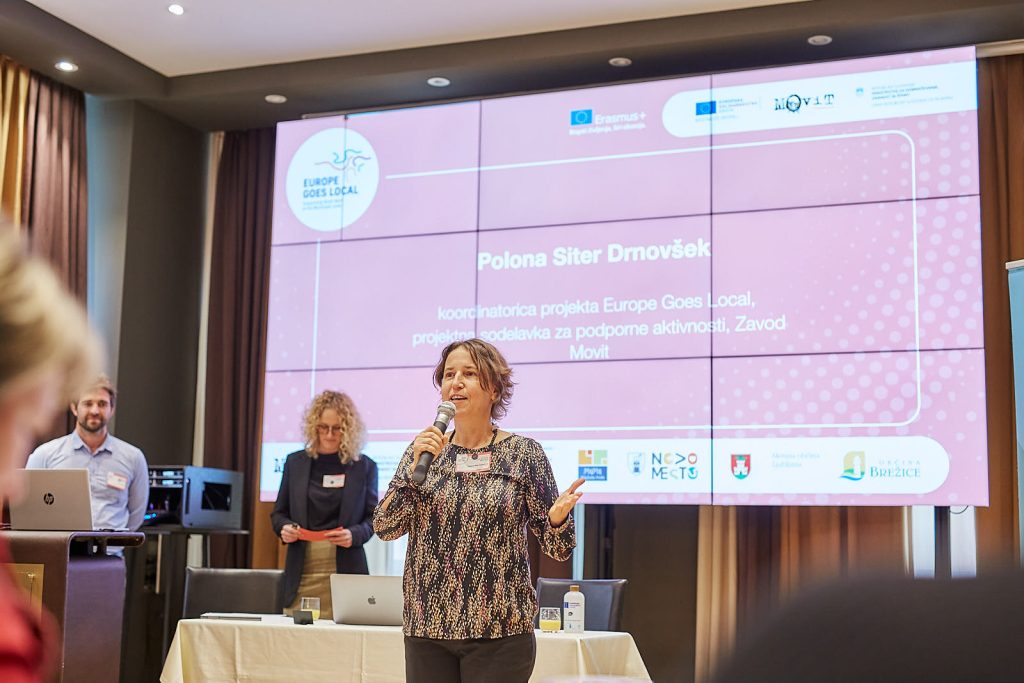
Next, Katarina Gorenc and Vesna Kržan, Adviser for Economy, Agriculture and Development at the municipality of Brežice, used the examples of the municipalities of Ljubljana and Brežice to present why and how they monitor and evaluate youth work. Both explained that it helps them to determine how successful they are in achieving their objectives, i.e. whether they succeed in meeting the needs and aspirations of young people, whether they succeed in addressing the desired goals of the group, even whether the (financial) investment is proportionate to the actual impact. They use the Logbook tool to develop qualitative data, while at the same time it allows them to monitor the number of activities, hours invested in youth work and youth facilitation, the number of participants and much more. The tool gives them tangible results, which they can used to present youth work to decision-makers and other relevant actors.
After the presentations, participants shared experiences with each other. Participants of the 2022 activity presented their participation in study visits to Helsinki, Croatia and Lithuania. They also explained the implementation of the individual support to municipalities piloted in 2022 and 2023, they showed an example of the use of the Logbook in practice, and they presented the survey ‘Youth Centres and Leisure – What do you want?’, which the municipalities of Brda, Maribor, and Ljubljana carried out in 2022.
Next, Uroš Skrinar, Director of the Movit Institute, presented the Bonn Process and how the European Agenda for Youth Work is being implemented in Slovenia. Among other things, he mentioned that they will guide applicants to apply for projects that implement the objectives of the Strategic Plan for Youth Work in Slovenia, that they will facilitate support for relevant initiatives by organisations, they will promote cross-border cooperation with neighbouring countries and with the Western Balkan countries, and they will increase the number of study visits and activities of this kind within Europe Goes Local. He also mentioned YouthWiki, Europe’s online encyclopaedia of national youth policies, a comprehensive collection of national structures, policies and actions supporting young people.
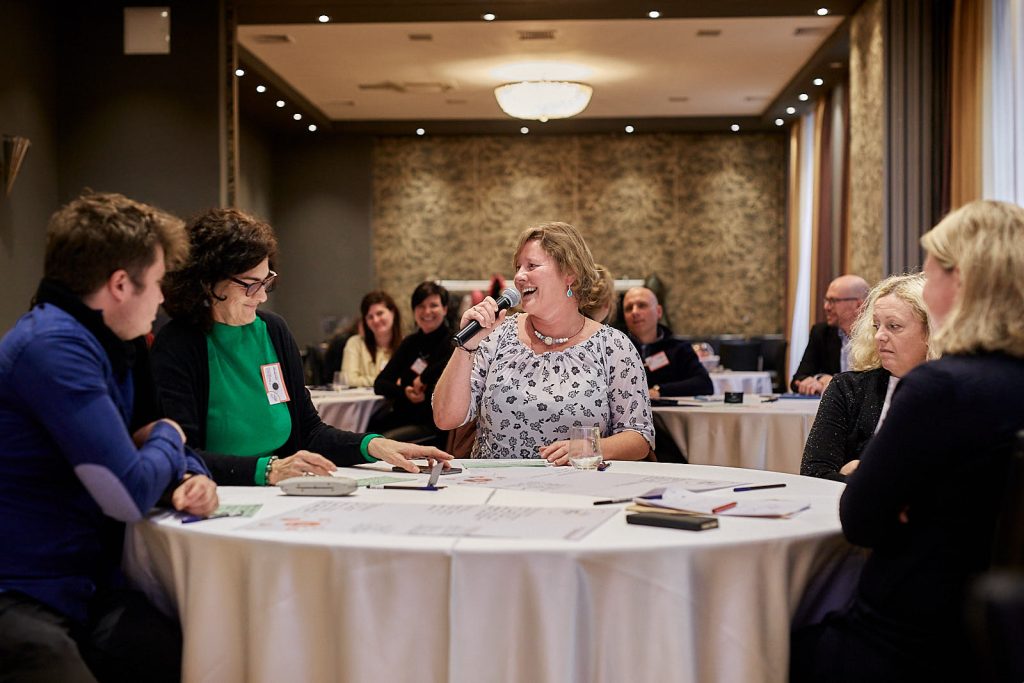
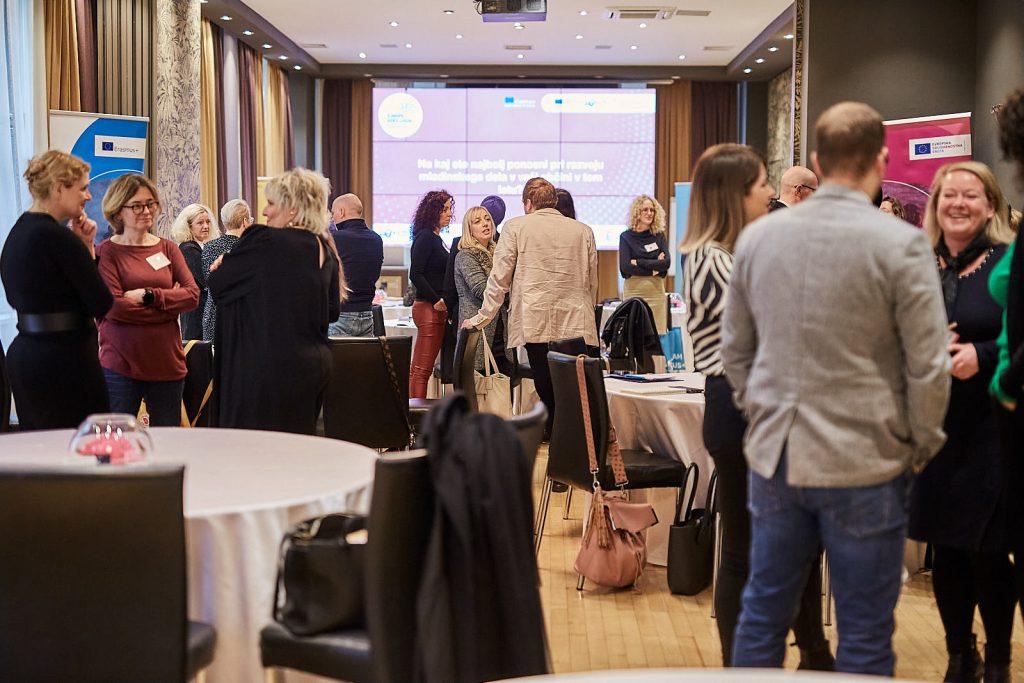
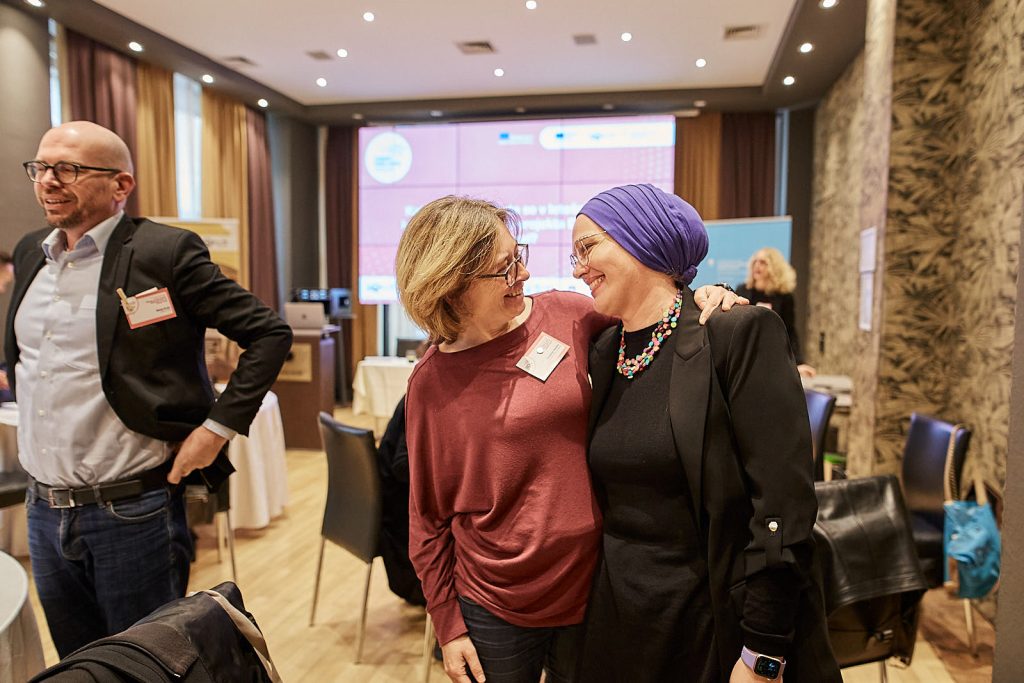
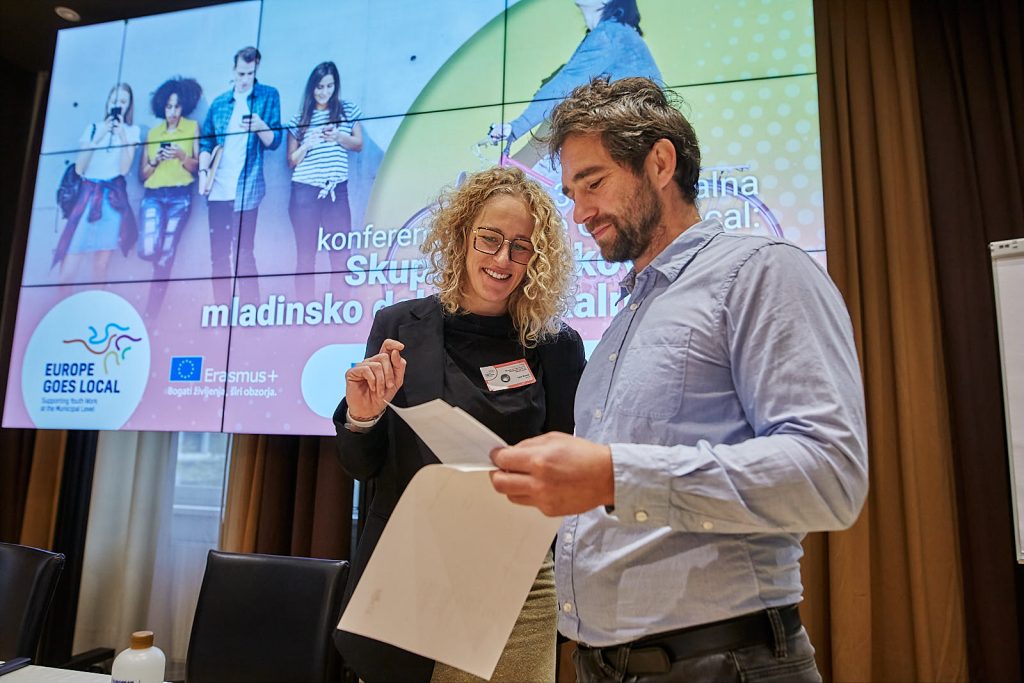
The participants heard an overview of how the National Agency works and what makes the most sense for municipalities within the programmes, strategic partnerships and activities managed by Movit.
After this, participants reflected on what municipalities still need to develop quality youth work. They pointed out that participation in study visits and trainings is very valuable for their work. Furthermore, they would like to explore other topics, including mental health of young people, digital youth work, and prevention methods. But the participants indicated that a major stumbling block was a lack of time and staff. Nevertheless, their motivation is high, and the Europe Goes Local events allows them to learn about different practices that they can transfer to their own work.
The conference was the last in a series of events within the Europe Goes Local partnership, whose main objective is to raise the quality of youth work at local level, in particular through enhanced cooperation between the different stakeholders active at municipal level. Movit, the national agency of the Erasmus+: Youth and European Solidarity Corps programmes, coordinates it in Slovenia.
You can read the original article about the Slovenian National Conference in Slovenian here.
Photographer: Anže Grabeljšek
